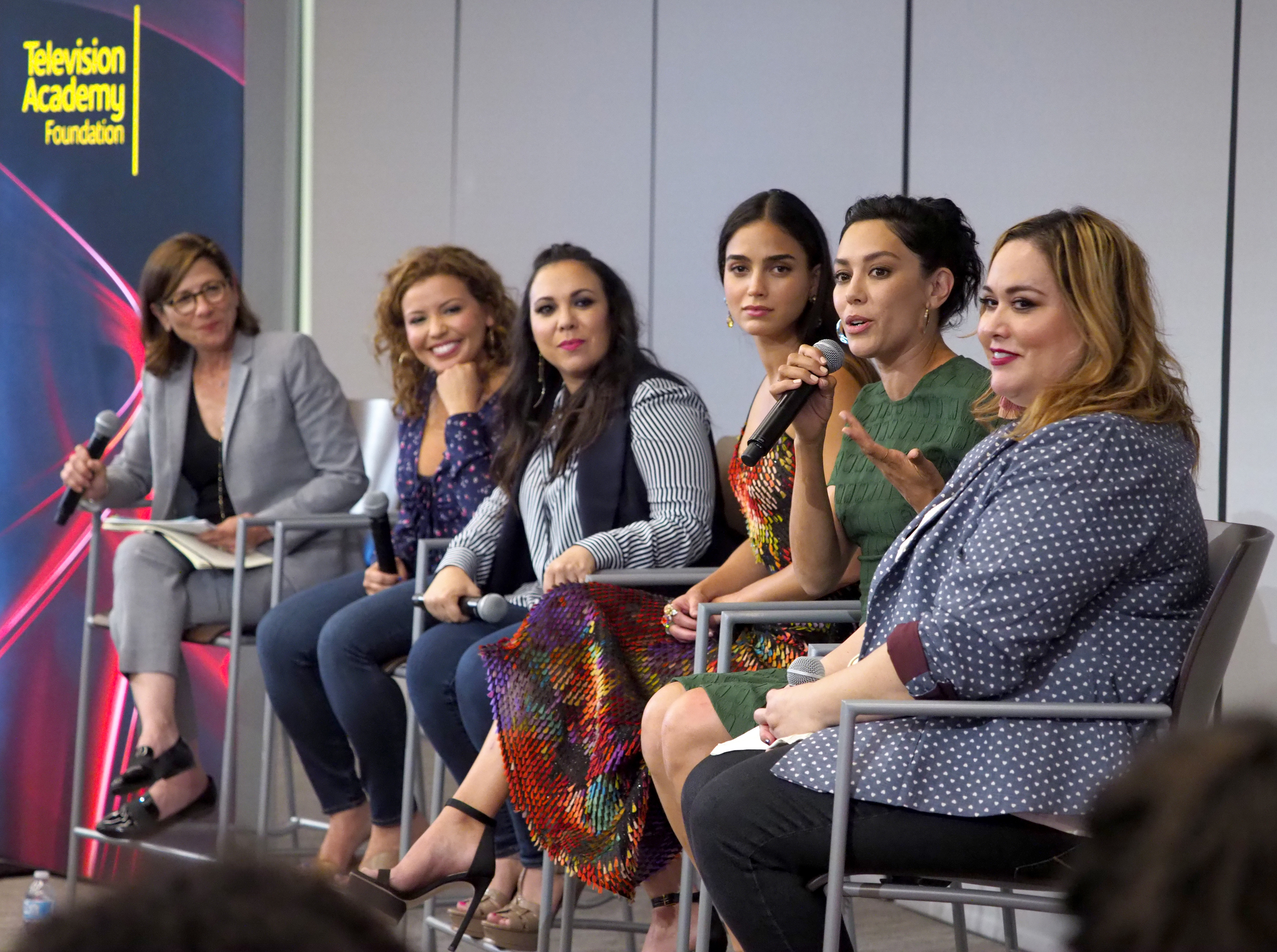‘One Day at a Time,’ ‘Vida’ Teams on Increasing Representation: ‘Latinos Need to Come Together’
By Kirsten Chuba
LOS ANGELES (Variety.com) – When it comes to fixing Hollywood’s diversity problem, particularly with the lack of representation for the Latinx community, ” One Day at a Time ” star Justina Machado has a simple solution: unity.
“I think as Latinos, we need to come together,” Machado said at the Television Academy Foundation’s The Power Of TV: Latinx Inclusion event on Thursday night. “There’s so much division: you’re this, I’m that; what are you doing playing that role, you’re not that ethnicity. We defeat ourselves sometimes and I think that if we came together— and I think it’s happening — I can’t imagine how strong we could possibly be.”
The actress was joined on the panel, focusing on Latinx representation in entertainment, by “” showrunner Gloria Calderon Kellett , ” Vida” showrunner Tanya Saracho and “” stars Melissa Barrera and Mishel Prada, all of whom discussed their roads to Hollywood and challenges to have their stories told.
Kellett echoed the need for the numerous Latin cultures to come together and “support it when good things are good so that [the studios] will make more good things, because they want an excuse not to continue doing it. They’ll say ‘Oh we tried but then we didn’t know Latinos actually don’t want to see themselves on TV.’ I’ve heard that before.”
The showrunner also called for those in the Latinx community to “celebrate that they’re good by talking about it and tweeting about it — ‘I love that they’re doing this, ‘I love that they’re doing that’— because they listen.”
“The power of Twitter now is real, y’all, it is real,” she said, pointing out that oftentimes minority projects are only given one chance to be successful.
For her part, Kellett emphasized the extra step she takes to bring women and people of color into the writing room on her shows, and after finding them, training them to soon lead their own diverse projects.
“We are not hiring staffs, we are hiring future showrunners,” she said. “We have to build the showrunners from the inside and give them a pathway to success.”
While support within the culture is key, the group noted how essential it is to have networks and studios on the side of increasing diversity, something that Saracho said has greatly benefitted “Vida.”
“Starz supported it at every point with dollars. They let me staff an all-Latina director roster, all my department heads are female, all my writers are Latina, they never questioned it,” she said, also emphasizing how much money the network put into promotion. “We premiered at South By Southwest and they rolled out the carpet, they really did it right, and I was just crying like ‘Thank you for rolling us out like a white show!’ because that means we have value.”
The panel also discussed why the Latinx community has had such a struggle with representation, despite being some of the biggest consumers of film and new technology.
“We’re invisible in many ways in this country,” Saracho said. “There are children in cages and now it’s like a forgotten thing, they’re still in cages. We’re invisible across the board in this country so to try to fix only the TV part of it is really difficult.”
Along those lines of invisibility, the women brought up the recent revelation that new CBS series ” Magnum P.I .” has no Latinx writers despite having a Latino lead in Jay Hernandez . Saying that execs on the show have now reached out to her and Kellett for their lists of minority writers, Saracho joked, “Shaming works, y’all.”
“They could’ve taken those phone calls like we did and they didn’t, that’s OK. We shame them a little bit and will shift culture, it’s worked in other things,” she said. “We have to take up space. We’re invisible because they make us invisible but we start to believe it. Let’s not believe it, let’s make a little noise.”

